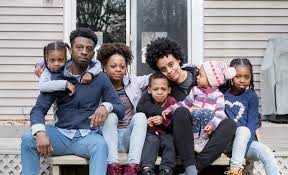Reprint from Fox 59
INDIANAPOLIS — A housing discrimination complaint filed by a Black Indianapolis homeowner alleges that after she removed items from her home that identified her race and asked a white male friend to sit in on an appraisal, the value of her home jumped more than $100,000.
Carlette Duffy filed the complaint in conjunction with the Fair Housing Center of Central Indiana, or FHCCI. Last year, Duffy decided to jump in on the hot housing market and refinance her home in a historically Black neighborhood just outside downtown Indianapolis. Duffy planned to use her equity to purchase her grandparents’ home nearby.
After two home appraisals came back close to the price she paid for the home in 2017, Duffy thought something was wrong.
“When I challenged it, it came back that the appraiser said they’re not changing it,” Duffy said.
After Duffy saw FHCCI Executive Director Amy Nelson speak to a community group about discrimination in housing appraisals, where she pointed to a recent New York Times article about the issue, she decided to try her own test.
“I decided to do exactly what was done in the article,” Duffy said. “I took down every photo of my family from my house. … I took every piece of ethnic artwork out, so any African artwork, I took it out. I displayed my degrees, I removed certain books.”
Duffy asked a white male friend to sit in on the home appraisal and did not declare her race in her application or communications with the appraisal company. The new appraisal came back at more than double the first two, valuing her home more than $100,000 higher.
“I get choked up even thinking about it now because I was so excited and so happy, and then I was so angry that I had to go through all of that just to be treated fairly,” Duffy said.
In the two complaints, Duffy and FHCCI ask the U.S. Department of Housing and Urban Development to investigate the difference in the appraisals. In the first two appraisals, Nelson said comparable sales, or comps, were pulled from Black neighborhoods more than a mile from Duffy’s home, rather than those nearby that were closer to the specifics of her house. “Whether or not those comps were fairly selected is something that is the basis of the complaints that we have filed,” Nelson said.
Duffy was able to use the third appraisal to purchase her grandparents’ home. She hoped that her case would serve as a catalyst to examine discrimination and bias in the appraisal and housing industry to ensure the process is fair for everyone. “I’m doing this for my daughter and I’m doing this for my granddaughter, so that when they come against obstacles they will know that you can stand up, you can say that this is not right,” Duffy said. “We think it’s happening a lot more than is being reported and we want to get the word out to know that we are here as a resource for individuals if they feel this may be happening to them,” Nelson said. You can read more about the FHCCI’s investigation into appraisals at the link here.
FOX59 reached out to the appraisers and mortgage companies named in the complaints. We did not receive any comment, though one appraiser did say by phone that he had not been made aware of the complaint.
The Appraisal Insitute, which represents appraisers across the country, sent the following statement:
When we see even one story of a consumer who feels they were treated differently because of their race, it’s very concerning because that goes against everything we stand for. Appraisers take a lot of pride in being an objective source of real estate value information. We look at the numbers and facts and mirror what the market tells us. We have a project team that is going to review research and reports about diversity, equity and inclusion in appraisal. Whether or not we agree with someone’s research methodology, we want to better understand what we might learn or glean from other people’s work.
We are interested in these studies and the researchers’ perspectives, and we want to understand their findings and viewpoints. We also are participating in the Brookings Institution challenge to address systemic racism in the housing market, sitting side by side with those in the greater real estate world and people who are very much outside of the profession. The more people who can experience economic opportunity, the better off they will be and the better off all our communities will be. We want to help advance policies that enable economic opportunity knowing that care must be taken to avoid unintended consequences from policy changes, such as placing consumers in “upside down” mortgages or fueling housing bubbles.
Appraisal methodologies, such as the sales comparison (or market approach), are grounded in economic principles intended to fairly and objectively value property for all. These approaches have been tested through time and economic crises and are observed across the world. The question is whether there is a better way of valuing property that maintains objectivity while not inadvertently introducing new problems for the very consumers for whom we’re trying to ensure equity.
In instances where concerns have been raised about appraisals, we do not know all the circumstances in how appraisals may have been ordered by lenders or appraisal management companies, how appeals may have been handled, or what instructions were given to subsequent appraisers. Regardless of that, as an organization we must educate ourselves about potential bias, just as professions across America are doing. At the same time, of course, appraisal is one piece of a larger ecosystem to look at when it comes to housing issues. We don’t think there is any one solution to a problem rooted in hundreds of years of history. Appraisal is one piece of a larger set of issues to look at when it comes to housing issues.
We are working with members of Congress like House Financial Services Committee Chairwoman Maxine Waters on how to bolster fair housing programs and develop solutions to mortgage credit problems. We are reinforcing ethics, education and training so appraisers stay up to date with information and be better equipped to do their best work. We are developing a 5-hour seminar on valuation bias that will delve into explicit bias (discrimination), implicit (or unconscious) bias, and systemic biases (historical redlining, restrictive covenants and other biases in the market) confronting appraisers. And we are backing policy solutions that advance equity related to appraisal, fair housing and equitable mortgage solutions, alongside consumer groups, real estate brokers and agents, banks, government agencies and others while also exploring where housing inequities may stem from and what combination of solutions should be considered.
Over the last two years, the Appraisal Institute has been amplifying and accelerating internal initiatives and partnerships to bring about positive change, including improving diversity within the profession through the Appraisal Diversity Initiative in collaboration with Fannie Mae and the National Urban League, and with our Minorities and Women Course Scholarship from the Appraisal Institute Education and Relief Foundation. There is more to do, and this work is a priority for the Appraisal Institute this year. We recognize that recruiting for greater diversity will make us stronger and more representative of the communities we work in and contribute to greater cultural awareness.
We believe that overwhelmingly, there are more good people in this world than bad, including in the appraisal profession – and that today, more than ever, people are committed to listening, learning and changing. That said, it is widely accepted that unconscious bias is real, and no profession is immune from that. If anyone believes they have experienced discrimination or bias in an appraisal, we encourage them to report it to the appropriate fair housing agency or state appraiser regulatory agency.

